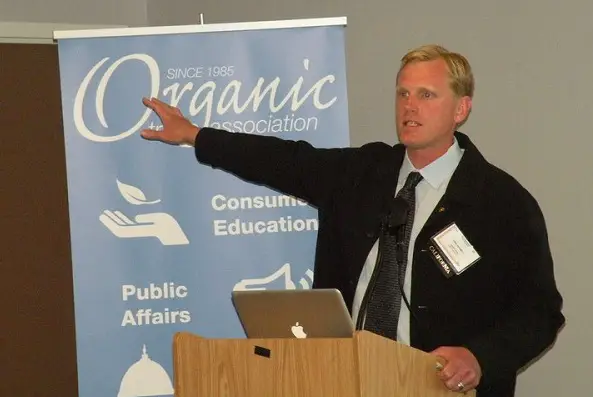Even as United States consumers begin demanding more and more organic foods, organic farmers themselves are struggling with the realities of life in a system that seems set up for genetically modified crops to thrive.
Subsidies for corn and soybeans are the norm here, and while farmers who wish to grow either of the crops organically have the opportunity to get in on the benefits, they also have to contend with the ever-present specter of GMO contamination, which can often cost organic farmers thousands each year.
The headaches of growing organic crops that are dominated by the GMO industry has caused many farmers to abandon growing them organically altogether.
And yet USDA Secretary of Agriculture Tom Vilsack, a former Biotech Governor of the Year in Iowa, has continued to ignore requests to address the ongoing issue of GMO contamination.
“The one thing I am really tired of is division,” said Vilsack according to the Wall Street Journal at a Food Summit event on agricultural coexistence in Raleigh, NC this past week. “This is about finding a path forward.”
Despite Vilsack’s wishes, organic farmers remain frustrated that their concerns aren’t being heard, especially in regards to contamination, creating a system where organic farming is discouraged and far more difficult than it should be, especially financially.
Pollen drift from GMO crops is a constant threat to organic farmers both in terms of lawsuit potential and in terms of the need to spend big bucks on “buffer zones” just to avoid becoming contaminated by GMOs on their own land, and the potentially devastating market rejection that comes along with it.

Colin Archipley speaking to veterans at an event about organic farming in 2011. The OTA lobbied for the USDA to address the costly problem of GMO contamination this past week. PHOTO: OTA Facebook page.
Laura Batcha of the Organic Trade Association raised these concerns at the event, noting the thousands of dollars in costs incurred by organic farmers in order to stay clean, an outcome that is still far from guaranteed.
Also at the event, pro-GMO farmers raised concerns about the growing skepticism of GMO foods, and industry advocates lamented the slowing of new GMO technologies due to concerns about the health and environmental effects from consumers.
The pro-GMO crowd also reportedly expressed concerns that organic “is not going to feed the world,” despite the fact that a major UN report recently said the opposite.
Whole Foods executive global grocery coordinator Errol Schweizer added that “organic is the future of American agriculture,” and said that the company is having a hard time finding enough certified organic foods to produce products for the company —just one of many signs that the organic movement is here to stay.
Now the hope for organic farmers is that the USDA finally addresses their concerns and gives them the respect they deserve. For more on the event, check out this article from the Wall Street Journal here.
P.S. Thanks for reading; click here to subscribe for more updates in your inbox.
Thanks for installing the Bottom of every post plugin by Corey Salzano. Contact me if you need custom WordPress plugins or website design.





